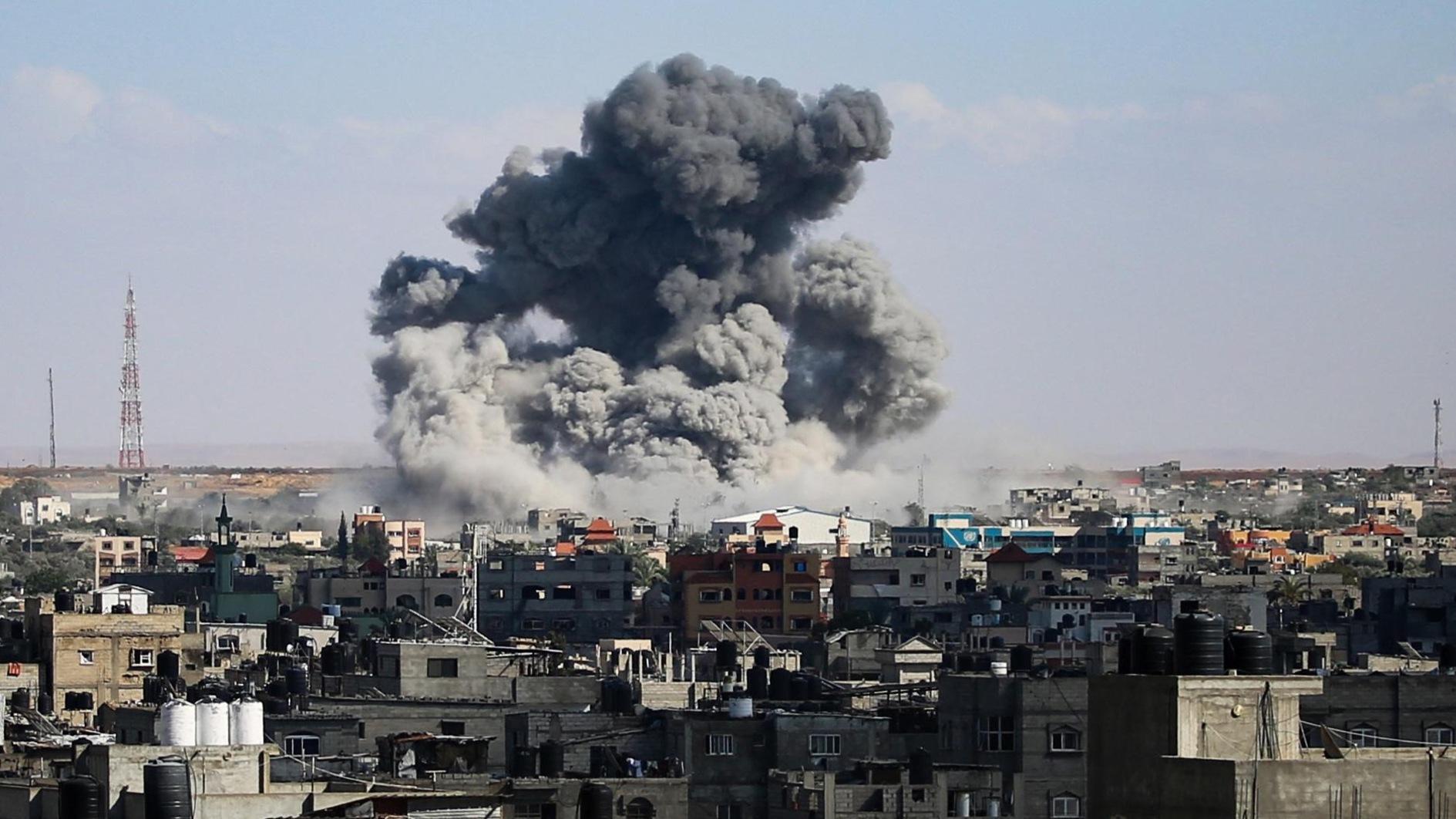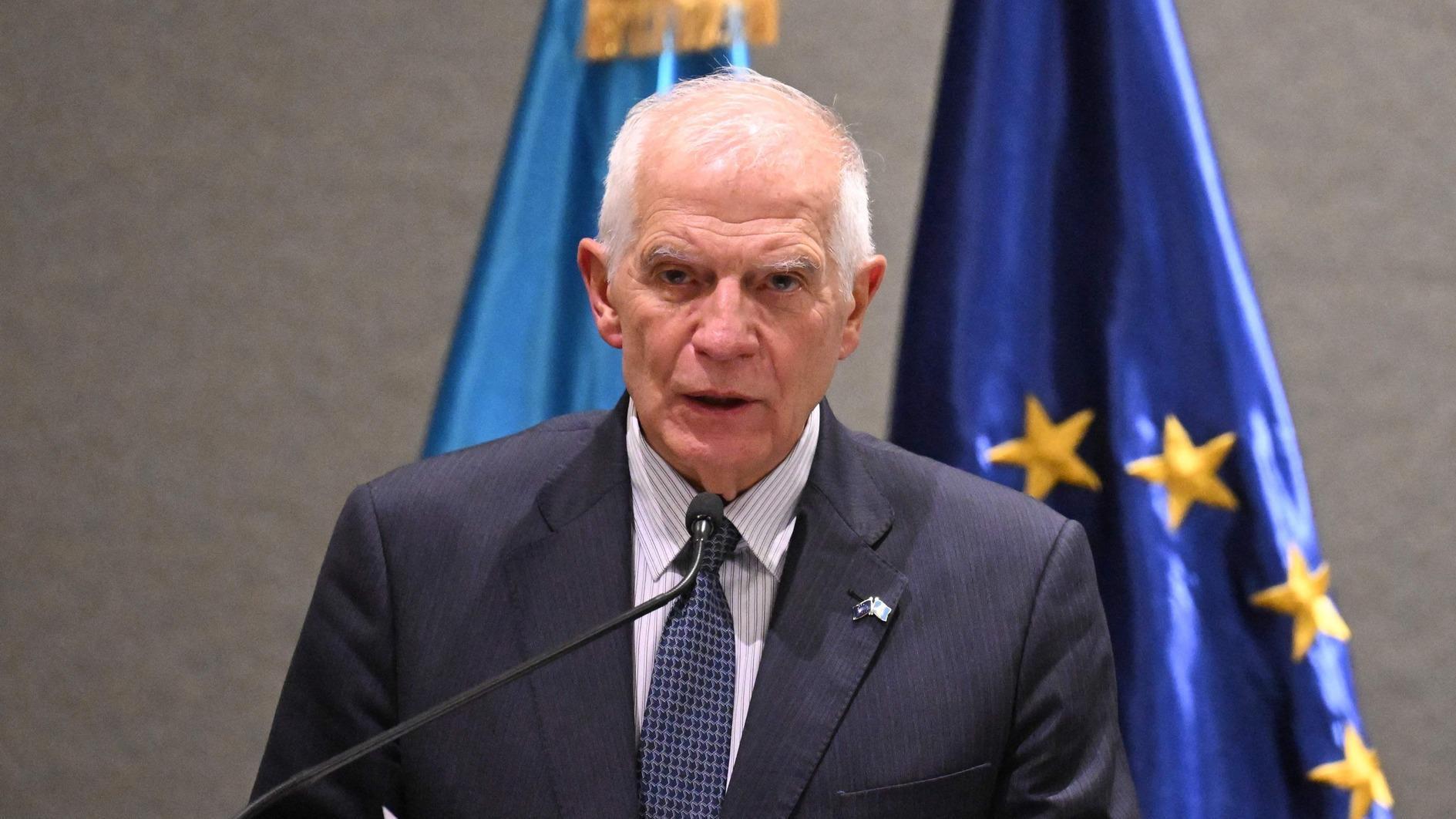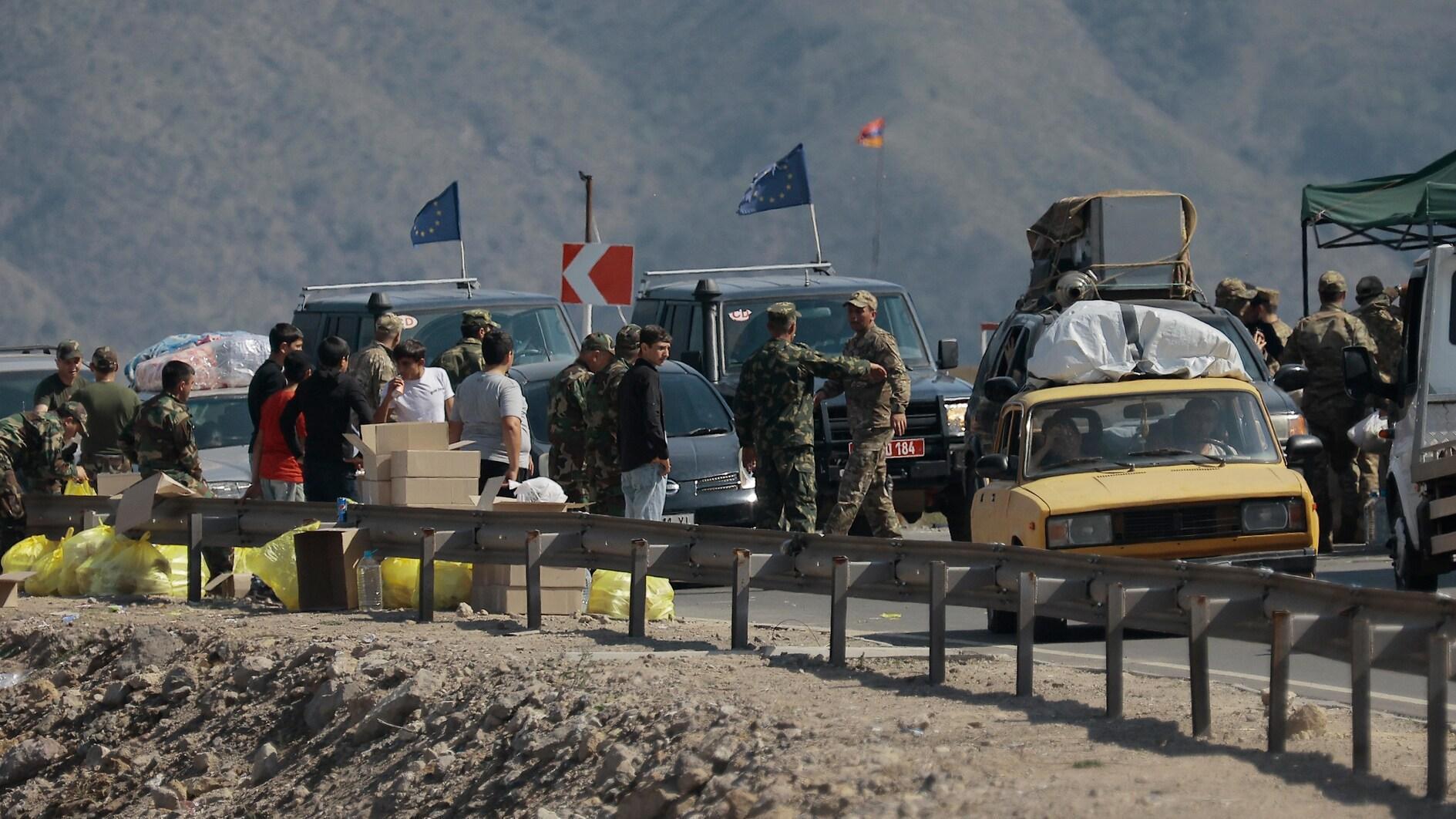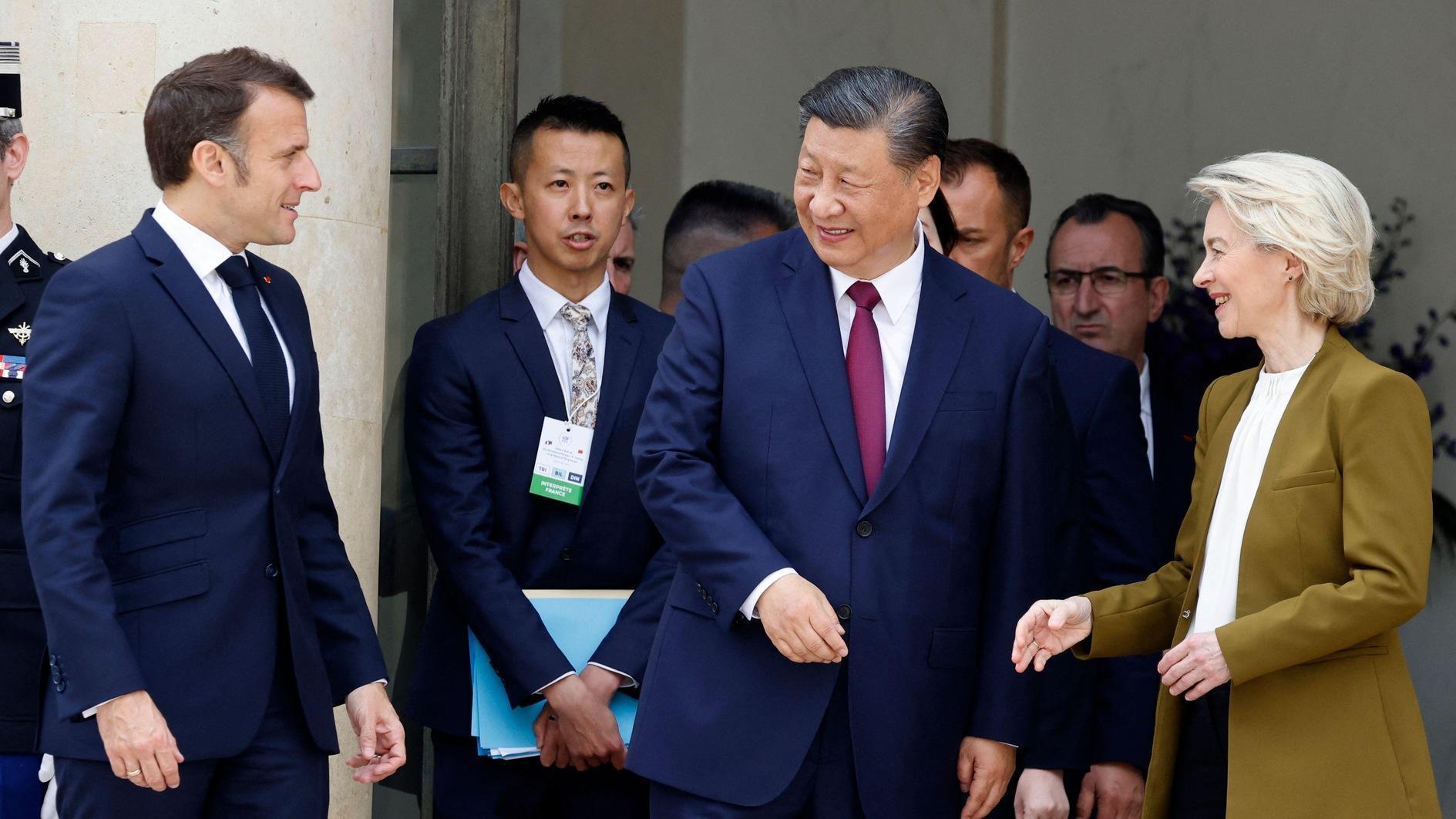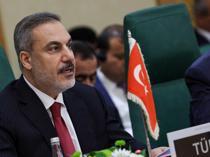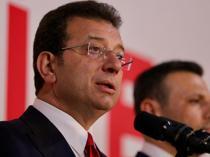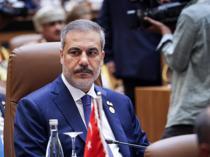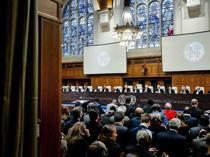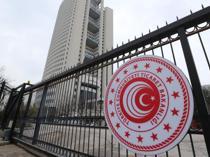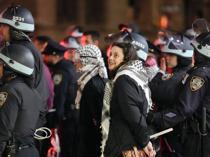Struggle against terror the top priority: G-20 leaders
ANTALYA
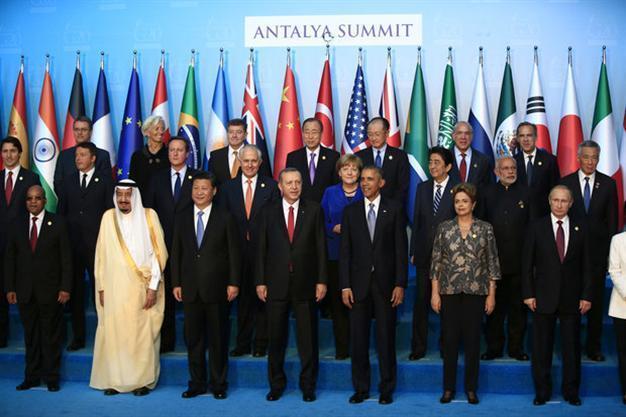
AP photo
The leaders of the Group of 20 countries, who gathered in Antalya with a rare international political and security agenda, have put the struggle against terrorism at the top of their priorities in the aftermath of the Nov. 13 Paris attack and last month’s Ankara Massacre.“The fight against terrorism is a major priority for all of our countries and we reiterate our resolve to work together to prevent and suppress terrorist acts through increased international solidarity and cooperation,” read a joint statement released on the last day of the summit attended by world leaders including U.S. President Barack Obama, Russian President Vladimir Putin, Chinese President Xi Jinping and German Chancellor Angela Merkel, among others.
The struggle will be “in full recognition of the U.N.’s central role and in accordance with the U.N. Charter and obligations under international law, including international human rights law, international refugee law and international humanitarian law, as well as through the full implementation of the relevant international conventions, U.N. Security Council Resolutions and the U.N. Global Counter Terrorism Strategy,” it read.
The declaration began with a joint condemnation.
“We condemn, in the strongest possible terms, the heinous terrorist attacks in Paris on Nov. 13 and in Ankara on Oct. 10,” it said. “They are an unacceptable affront to all humanity. We extend our deepest condolences to the victims of terrorist attacks and their families. We reaffirm our solidarity and resolve in the fight against terrorism in all its forms and wherever it occurs.”
The G-20 leaders pledged to remain “united” in combatting terrorism, naming many fields of struggle ranging from finance to Internet use.
“The spread of terrorist organizations and a significant rise globally in acts of terrorism directly undermine the maintenance of international peace and security and endangers our ongoing efforts to strengthen the global economy and ensure sustainable growth and development,” said the nine-item statement.
“We reaffirm that terrorism cannot and should not be associated with any religion, nationality, civilization or ethnic group,” it said.
Turkish President Recep Tayyip Erdoğan also warned during his closing speech that countries should not tighten their refugee policies following the terrorist attack in Paris claimed by the Islamic State of Iraq and the Levant (ISIL), during a speech at the G-20 Summit in the Mediterranean resort town of Antalya.
“Establishing a link between acts of terror and refugees is evading humanitarian responsibility,” Erdoğan said Nov. 16, urging “genuine solidarity” among G-20 states in dealing with both issues at once.
In his speech, he reiterated his belief that G-20 members have an obligation to focus on political affairs alongside matters of finance and the economy, as a healthy global economy is impossible to attain without attaining “sustainable global peace.”
“The G-20 does not have the luxury to ignore matters directly linked to economic stability,” Erdoğan said, focusing particularly on the ongoing war in neighboring Syria, ISIL and the plight of refugees fleeing violence.
Stating that Turkey currently hosts around 2.5 million refugees, primarily from Syria and Iraq, Erdoğan stressed that the problem could no longer be tackled by a single country.
“The problem of terror and refugees cannot be resolved until a solution is reached in Syria that is acceptable to all parties,” he said, adding Syria’s territorial integrity, safety and democratic governance must be ensured.
Erdoğan also underlined that terrorism had “no religion, nationality or region,” adding that linking terror only to a specific religion would be an insult to the followers of that particular belief.
“The right to life is sacred in all religions,” he said.
While stressing that Turkey would continue to fight against ISIL, Erdoğan said it would also combat al-Qaeda, Boko Haram and the outlawed Kurdistan Workers’ Party (PKK). In his exhaustive list of terrorist organizations, Erdoğan again included the People’s Protection Units (YPG) and the Democratic Union Party (PYD) – Syrian Kurdish groups fighting against ISIL but with links to the PKK that have been praised by the international community for their actions.
Speaking at the end of the G-20 Summit, Obama said that the “U.S. military could march into Mosul, Raqqa or Ramadi and temporarily clear out Islamic State [ISIL] but would see a repetition of what have seen before.”
“I do think that Muslims around the world, religious leaders, political leaders, ordinary people, have to ask very serious questions about how did these extremist ideologies take root,” Obama said responding to a question by daily Hürriyet.
“Even if it’s only affecting a very small fraction of the population, it is real. And it is dangerous,” he said.


